Maigret's Rowan Atkinson: 'Richard Curtis said to me, ‘You do realise you’re going to play a character closer to yourself than you ever played before'
The comic actor who plays the moody French detective in ITV's ‘Maigret’s Night at the Crossroads’ is a reminder that comedians often make the best straight actors
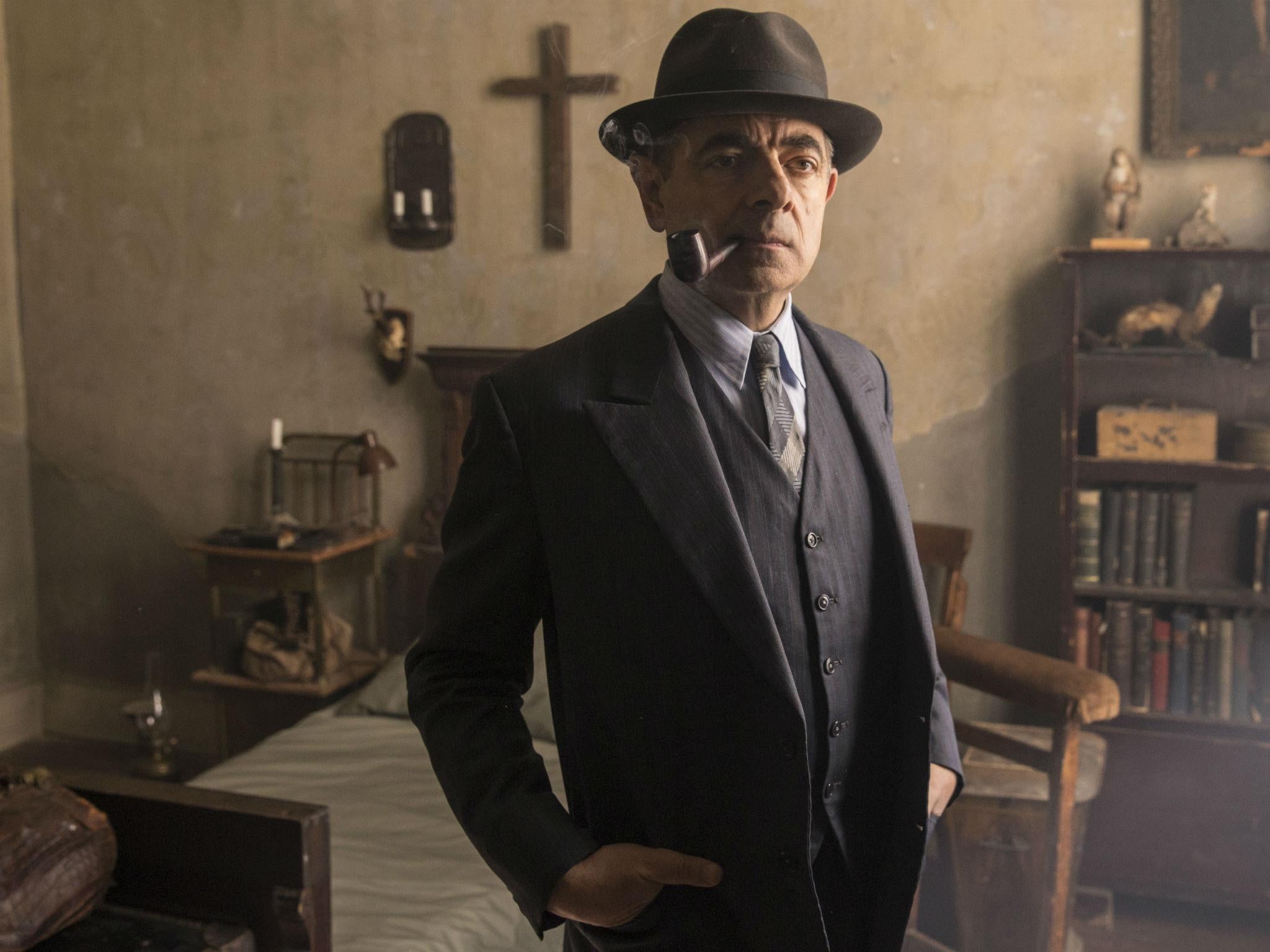
Your support helps us to tell the story
From reproductive rights to climate change to Big Tech, The Independent is on the ground when the story is developing. Whether it's investigating the financials of Elon Musk's pro-Trump PAC or producing our latest documentary, 'The A Word', which shines a light on the American women fighting for reproductive rights, we know how important it is to parse out the facts from the messaging.
At such a critical moment in US history, we need reporters on the ground. Your donation allows us to keep sending journalists to speak to both sides of the story.
The Independent is trusted by Americans across the entire political spectrum. And unlike many other quality news outlets, we choose not to lock Americans out of our reporting and analysis with paywalls. We believe quality journalism should be available to everyone, paid for by those who can afford it.
Your support makes all the difference.Rowan Atkinson is famous throughout the world as Mr Bean, a comedy show that is surely playing as in-flight entertainment somewhere on the planet at every single moment of the day. Mr Bean is celebrated for his mal-coordinated movements and gurning faces. He is constantly on the move.
So it is intriguing that the chief quality which the 62-year-old actor brings to his latest role is the polar opposite of Mr Bean. As Jules Maigret, Atkinson’s principal asset is stillness. Playing the iconic 1950s French detective in ITV’s adaptation of the best-selling crime novels by Georges Simenon, the actor succeeds in conveying as many emotions when he is silent as lesser performers manage in an entire speech.
The actor, who has also starred in such globally popular comedies as Johnny English and Blackadder, says: “The thing I thought I could do was Maigret’s thoughtfulness. It’s his ruminative and quite compassionate side, I suppose, which is interesting. Because he is definitely not an egotist, he is not a performer, he is not an eccentric, he is not a weirdo.
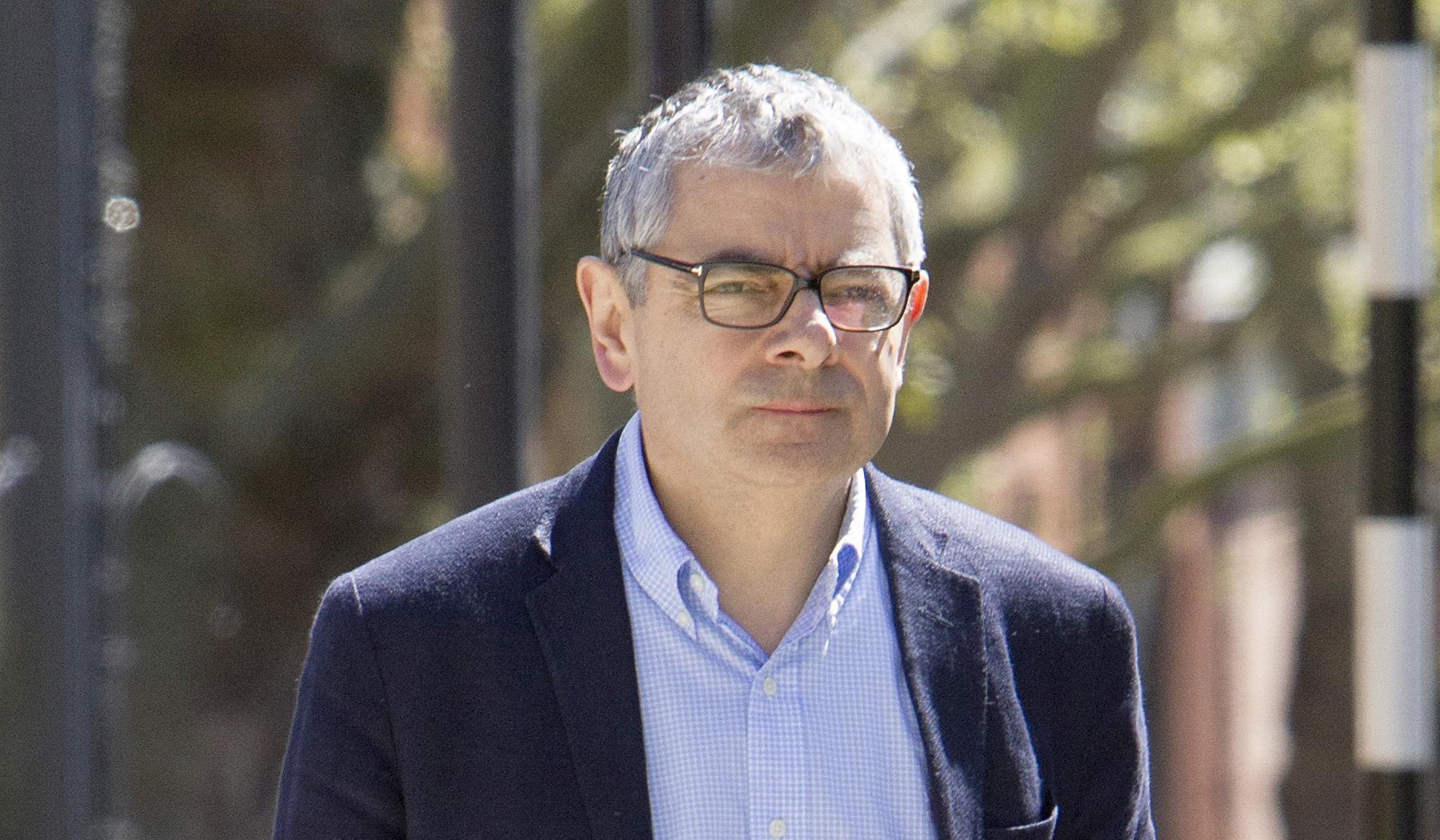
“I’m not claiming any of those things for myself, but I felt I could probably portray a lot of the aspects of him that did exist, particularly that quietness. I think I’m quite good at not doing very much on screen.”
He certainly is. As Maigret, Atkinson corrals his familiar on-screen exuberance, suppressing his natural instinct for broad comic gestures. Instead, he plays a quiet, brooding sleuth puffing contemplatively on his pipe as he attempts to solve the latest grisly murder on the streets of Paris. Rather than pulling funny faces, he adopts a forlorn, furrowed demeanour. His Jules Maigret is world-weary, not witty.
Atkinson is chatting to us in a break between scenes. Wearing Maigret’s dark three-piece suit, he is a friendly, pensive man who accords each question great respect. He continues that when approaching the role his main challenge lay in the fact that in some ways, he is quite similar to his alter ego.
He says: “When I told my friend Richard Curtis that I was going to do Maigret, he said to me, ‘You do realise you’re going to play a character closer to yourself than you ever played before’ – and he’s right. I’ve never wanted to play myself. I’ve preferred to play people far removed from me because it feels easier!”
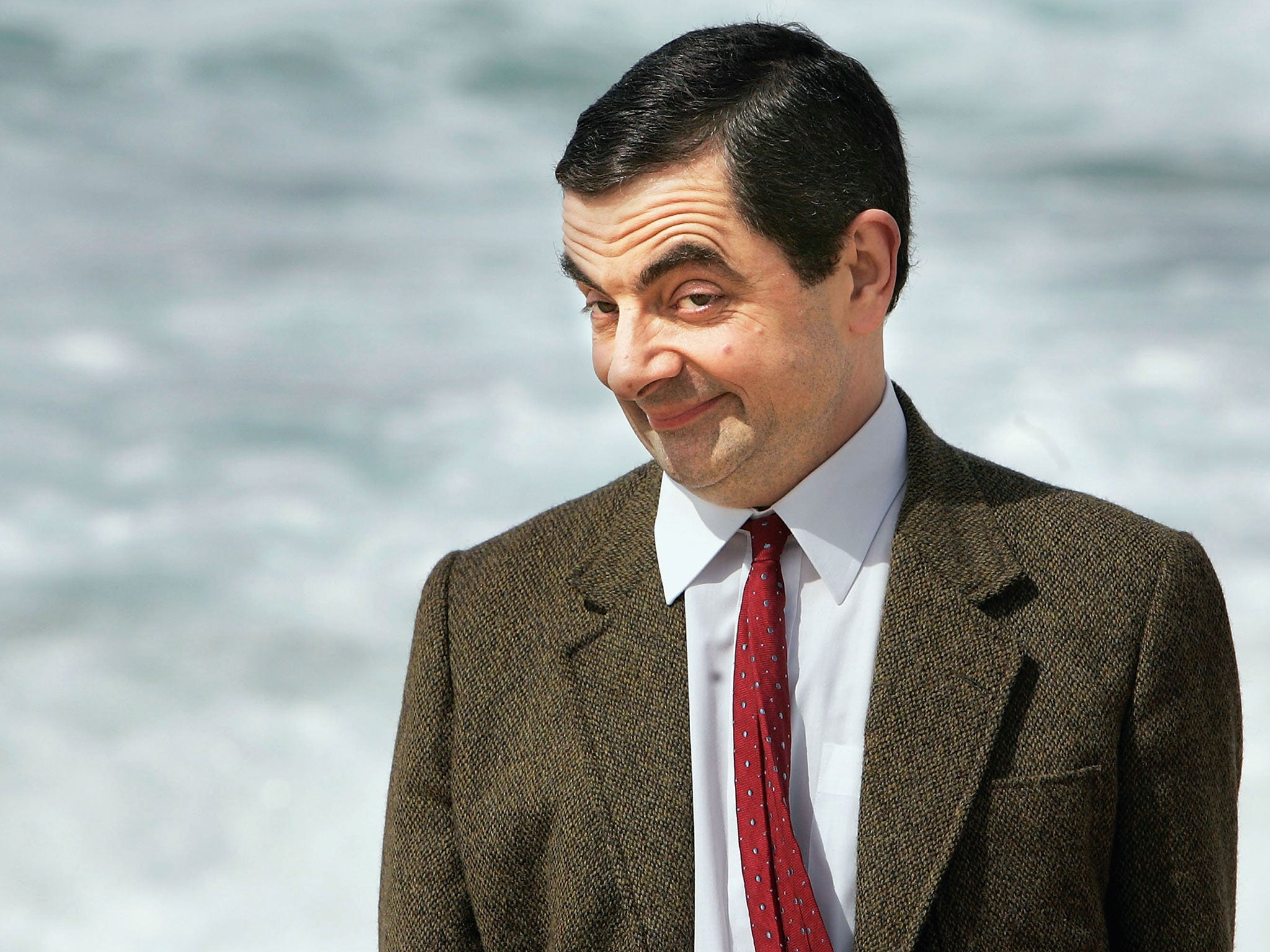
Nevertheless, the actor certainly convinces in Maigret's Night at the Crossroads. The sleuth is suitably reflective as he investigates the murder of a diamond dealer in a community that clearly has something to hide.
The Independent is on the set of Maigret in a village outside Budapest that has been dressed to resemble a seedy part of 1950s Montmartre. The street has been very plausibly Frenchified. It is replete with period details such as a beautiful maroon vintage Mercedes and crowds of extras in period costumes. There are more trilbies than you can shake a hat-stand at.

Watch Apple TV+ free for 7 days
New subscribers only. £8.99/mo. after free trial. Plan auto-renews until cancelled

Watch Apple TV+ free for 7 days
New subscribers only. £8.99/mo. after free trial. Plan auto-renews until cancelled
Billowing with atmospheric mist straight from a smoke machine, the cobbled street is full of (fictional) down-at-heel clubs with names such as Le Rendezvous des Poetes and Cabaret Bleu Nuit.
John Simenon, the son of the character’s creator, an executive producer on the drama and the keeper of the Maigret flame, says: “I was walking down the street, and I really wanted to have a bite to eat in one of those bistros – and then I realised, of course, that I couldn’t!” The irony is that you would struggle to find such a classic 1950s Montmartre scene in Paris today.
Atkinson’s affecting, restrained display in Stewart Harcourt’s screenplay reminds us that comedians – with their mastery of timing, rhythm, physical movement and facial expression – often make the best straight actors. After all, comedy and tragedy are very close cousins indeed.
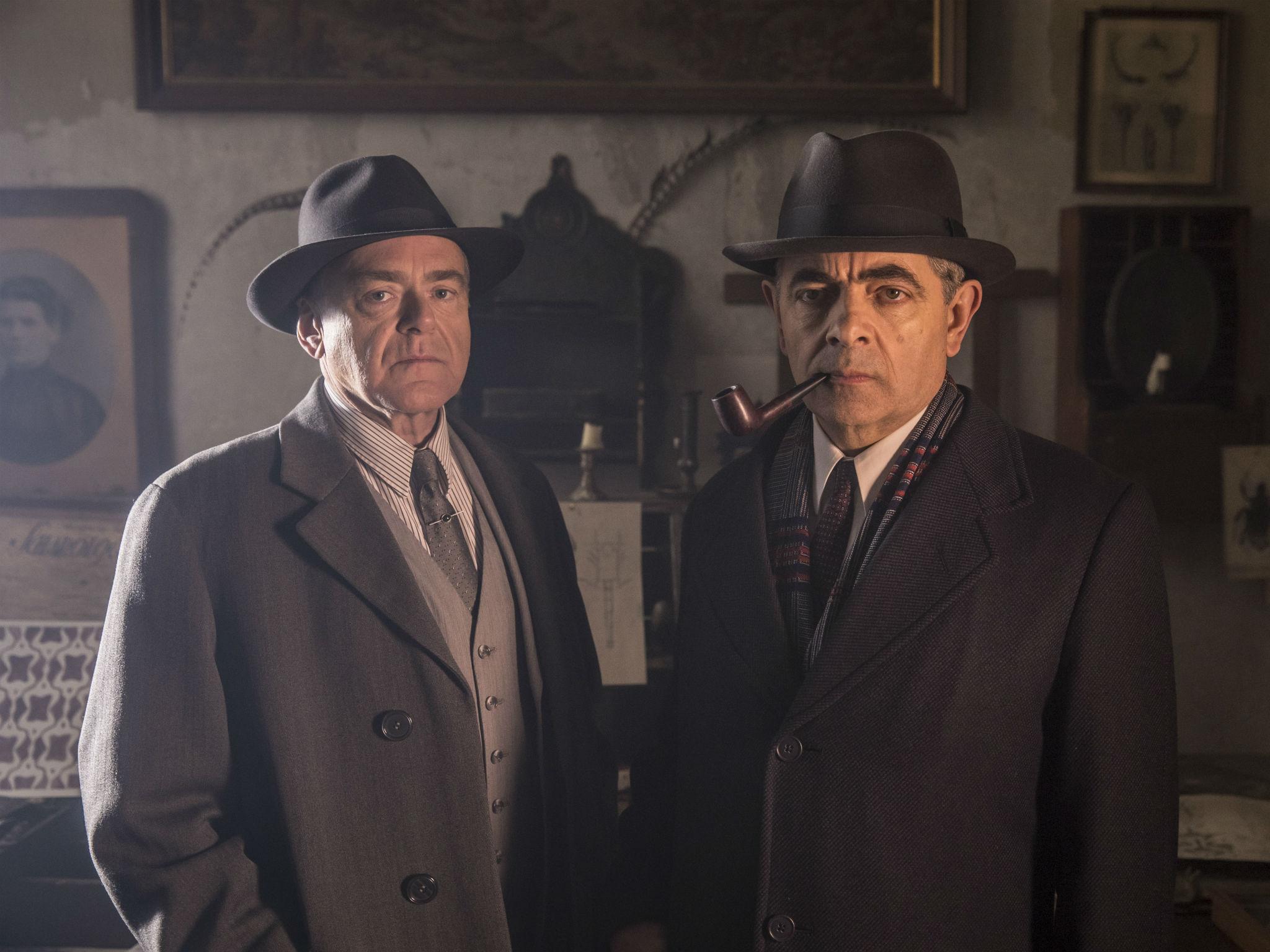
To reinforce the point, Monday night’s eagerly anticipated last-ever episode of Broadchurch, ITV’s grippingly addictive detective drama, stars not one but two actors previously best known as comedians: Sir Lenny Henry and Charlie Higson. They are both making a fine job of their roles as prime suspects.
Earlier this week, Robbie Coltrane, another performer once renowned for his comedy, rightly received a nomination for the Bafta Best Actor Award for his excellent performance as a has-been TV star accused of historic sexual abuse in Channel 4’s hard-hitting drama National Treasure.
In the same vein,Hugh Laurie picked up a well-deserved Golden Globe Award recently for his searing turn as a truly malevolent arms dealer in BBC1’s feted version of the John Le Carre novel The Night Manager.
But for all that, the makers of Maigret admit they were initially anxious that viewers might not accept Atkinson in such a defiantly uncomic role. Simenon confesses that to begin with he was worried about the choice of Atkinson as the moody Parisian sleuth. “When I first heard, I was just as surprised as anyone else.
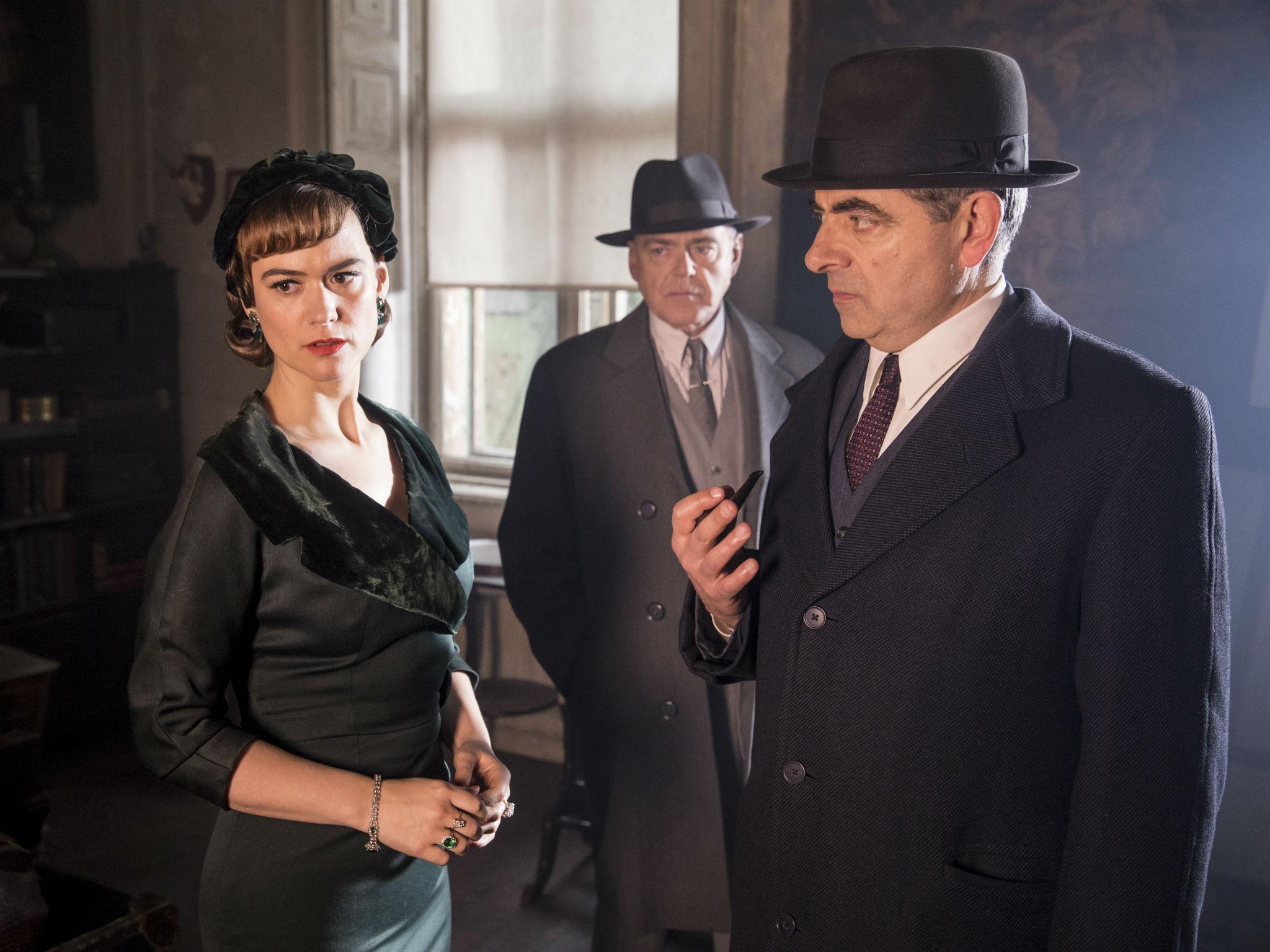
“I thought they were crazy. I was initially concerned about the comparison between Rowan Atkinson and Mr Bean. But the reaction has been very positive, and the public have recognised Rowan for what he is: a great Maigret.”
Simenon adds that, “The more I see Rowan in the role, the more I think it’s true. He has a great level of empathy which is ideal for the part. Maigret is all about understanding people. He doesn’t solve crimes. He solves people.”
Jeremy Gwilt, the producer of Maigret, acknowledges that they thought long and hard about Atkinson’s comic heritage. “It’s always a question, but you have to put that aside and just embrace the ambition. You can’t second-guess people’s preconceptions, but we had great confidence in Rowan and were ruthless in scrutinising his performance.
"We had a discussion about every single aspect of his performance – intonation, gesture, walk, anything that might give Rowan away as Mr Bean or Blackadder. We made sure we were creating something absolutely brand new. That’s how we dealt with people’s anticipation.”
Maigret is the subject of 75 novels which have sold a staggering 853 million copies across the globe. The character, who has previously been portrayed on screen by such great actors as Richard Harris, Charles Laughton, Michael Gambon, Rupert Davies and Jean Gabin, remains a widely adored figure.
Atkinson reflects on why, nearly a century after he first appeared in print, the sleuth is still so popular. “He’s a TV detective, so to an extent it’s a well ploughed furrow. There are a lot of them about.
“But Maigret is very different. He doesn’t have any oddities about him. He’s quite a plain man with a relatively simple life. He doesn’t have a French accent or a lisp or a limp or a terrible home life or a sordid past. He is a very ordinary guy doing an extraordinary job.”
The actor carries on: “It’s an interesting way to appreciate his job, to see the ordinariness of the guy set against the extraordinariness of the challenges he faces. It’s like when someone is elected prime minister. You know that, with certain exceptions, they’re ordinary guys who have been ambitious and are suddenly in a position of extraordinary power. They’re thrown a lot of problems and have to deal with them immediately.
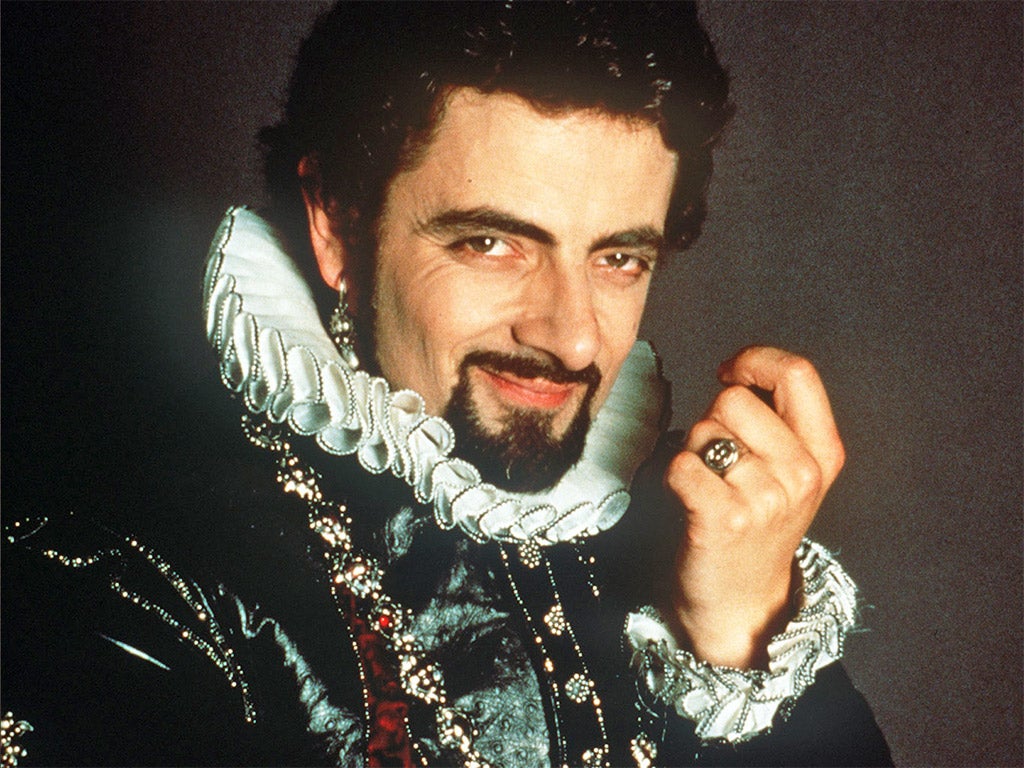
“If they’re sympathetic characters, then I think the people they represent have sympathy towards them. But if they’re less sympathetic characters, people are more ready to criticise. It’s that feeling of ‘cometh the hour, cometh the man’. With Maigret, a murder has to be solved, and this is the guy who has got to do it. So you’re automatically rooting for him. You do want him to succeed, so that helps. He’s a goodie, not a baddie.”
The one possible bone of contention when preparing the drama was whether or not it was appropriate to depict the detective smoking a pipe. But Simenon says he would not have countenanced any modern-day censoring of Maigret’s smoking habit. “Let me be clear: I think the pipe is essential to Maigret.
“If someone had suggested getting rid of the pipe, then unfortunately the show would not have taken place. I would have insisted that aspect was there. It’s 90 per cent of his DNA.”
Atkinson undoubtedly found the pipe useful for getting into the role. “The pipe and pipe-smoking is definitely a very important part of Maigret and his world and his attitude and his time,” he muses. “Certainly there was never any attempt to excise it. He is a very ruminative person and the pipe is a vital prop to emphasise that.
“Maigret might not have a limp or a lisp, but at least he’s got a pipe!”
'Maigret's Night at the Crossroads' is on ITV at 8pm on Easter Sunday
Join our commenting forum
Join thought-provoking conversations, follow other Independent readers and see their replies
Comments